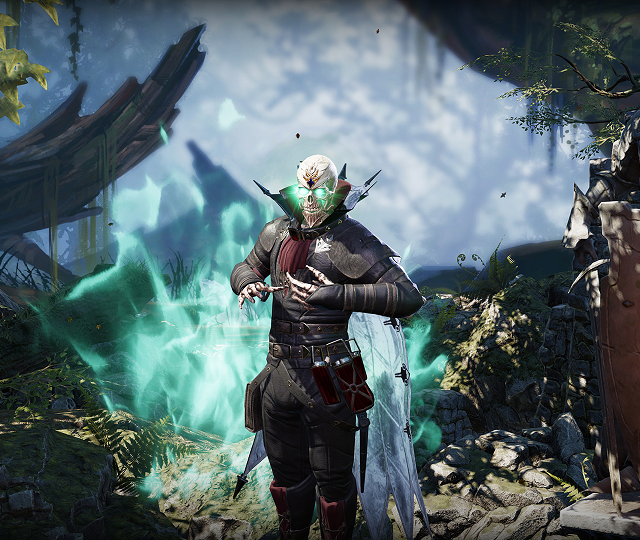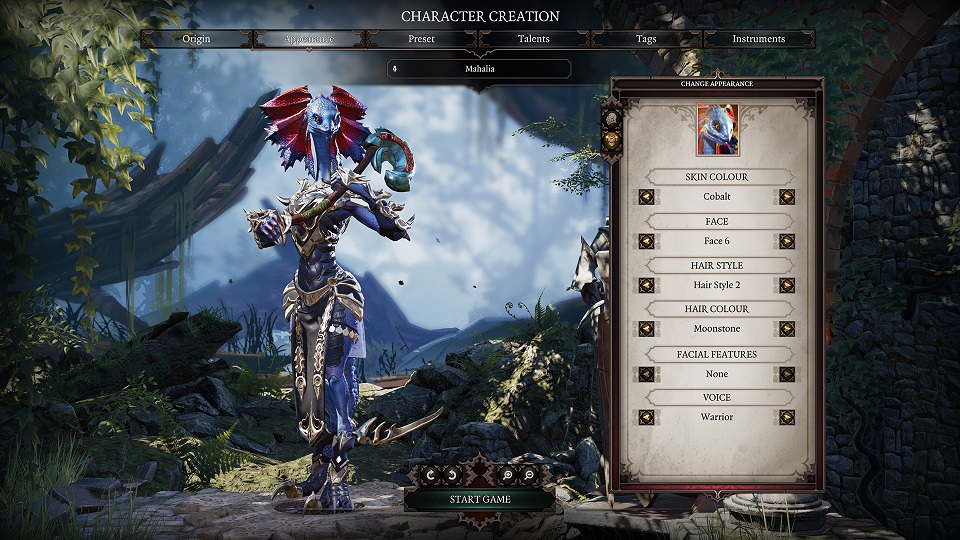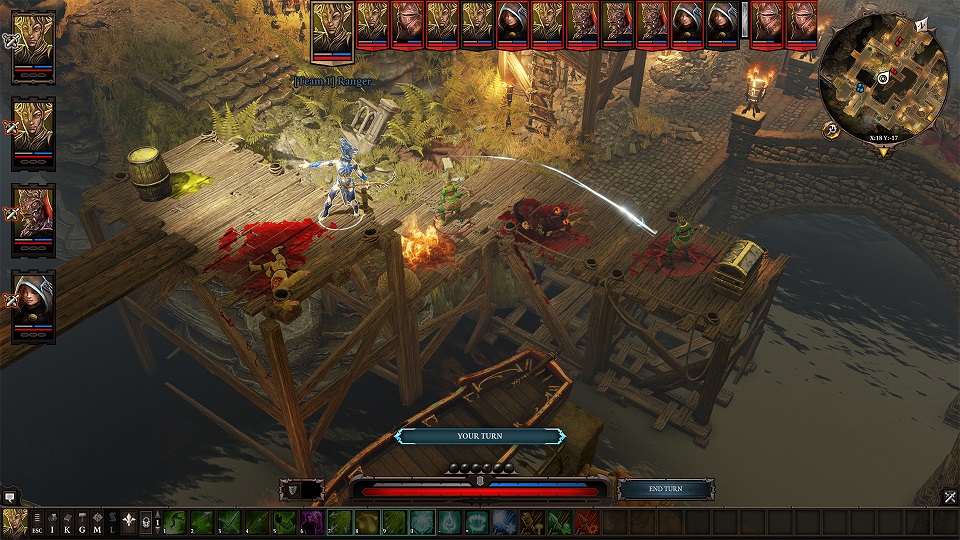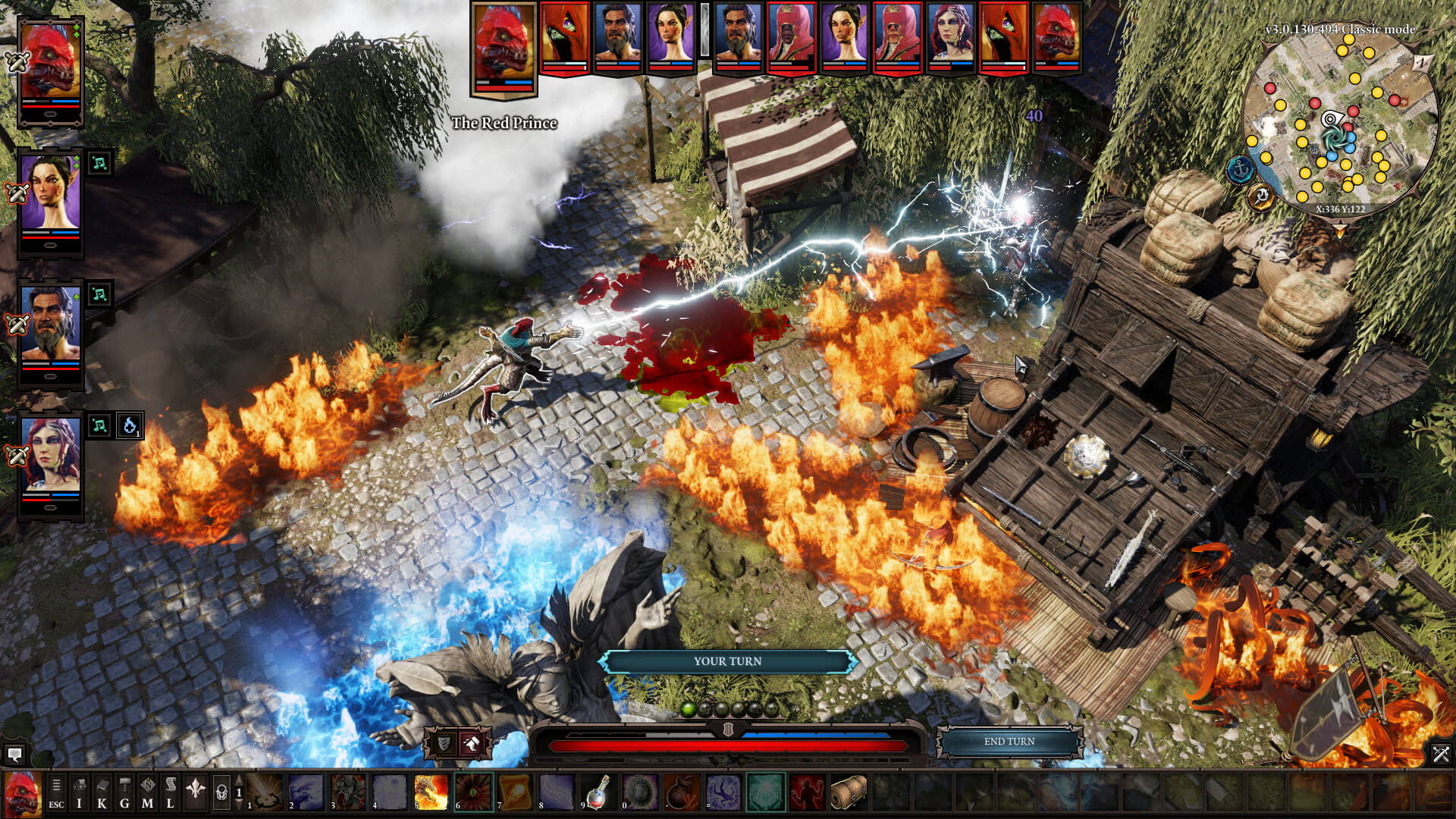Platform:
PC
Released:
September 14, 2017
Publisher:
Larian Studios
Developer:
Larian Studios
Developed by Larian Studios, Divinity Original Sin 2 is an increadible leap forward, not only for the series, but for RPGs in general.
Debuting back in 2014, the original Divinity was a refreshingly intricate and non-restrictive CRPG (Computer Role-Playing Game). The game was reminiscent of CRPGs of yonder, but brought seemlessly into the modern age. The game had so much depth, 2 player coop and one of the best combat systems seen in gaming. If the game had managed to create a narrative as engaging as other CRPGs then it would have blown everything else out of the water.
So in walks Divinity Original Sin 2, and oh boy is it something special.
“To anyone even mildly interested in the CRPG genre, this is the game you need to play. This is the new benchmark”
When I wanted to introduce a friend to the CRPG genre I always struggled. Classic games such as Planescape: Torment or Balder’s Gate aged in a way where they were mechanically uncomfortable to interact with. Not to mention those UIs. Modern CRPGs may be easier to get into but they were often incredibly dialogue heavy or just didn’t have the spark or freedom of older titles. With Divinity Original Sin 2 I’ll no longer struggle with that introduction. To anyone even mildly interested in the CRPG genre, this is the game you need to play. This is the new benchmark.
So what makes Divinity so special? Divinity feels like a game of Dungeons and Dragons come to life. The freedom and depth on offer is insane, and yet the systems put in place are so intuitive and fun that you don’t feel overburdened or inconvenienced. The story is much better than the original (though, still not perfect), the entirety of the game is voice acted, and the combat is just pure bliss. It’s a smart advancement on the already fantastic Divinity 1 combat and honestly I couldn’t fault it for trying. But I’ll gush more about that a bit later. Let’s start with the basics.
Jumping into a game of Divinity you’ll get to choose from a set of pre-created Origin Characters or you can make your own from scratch. Origin Characters will all have special interactions with the world, and NPCs will treat them accordingly.

If you opt to make your own character you’ll select from a few different races, each of which has their own special abilities and differences. You can also pick undead characters who have a fairly significantly altered play-style when compared to your standard characters, needing to wear hoods or masks to conceal their undead face and gaining no benefit from traditional healing methods. Once you have selected your race you go on to select a class with a lot of options here to choose from. Pre-selected archetypes exist but all of them can be tampered with to make your ideal load-out of statistics, characteristics and abilities. There is a lot of depth and variability to the character creator which makes any subsequent play-throughs varied and novel.
I played my first game as a royal lizard creature who specialises in close-quarters combat but also possesses the ability to metamorph. Metamorphs can shift their bodies into varying forms, growing a tentacle for a long range slap, growing bull horns and charging into battle or sprouting wings and leaping around the battlefield, for instance.
The narrative sees you held captive on a ship heading to a detainment camp because you are what is known as a Sourcerer. Sourcerers are feared by many of the world because you possess the ability to use powerful Source magic. Another Sourcerer on your ship escapes captivity, murders her captives and flees. Her use of Source magic triggers the arrival of Source Woken who now pursue you and the other Source Hunters. Your ship goes down, but the world isn’t finished with you yet and you wash up on the shore of the very detainment camp that was to be your ships destination. Your task now is to escape the camp, find out who ordered your detainment, fend off Source Woken and other foes, and find out who the evil Source Hunter is, among like… hundreds of other quests.
Questing is organic and non-mandatory. Divinity isn’t a trope of a video game. There aren’t quest givers with giant exclamation marks above their heads, there aren’t quest logs that tell you exactly what to do and where to go, and the world doesn’t stop to wait for you. Shit keeps moving with or without you. That NPC who just asked you to help isn’t going to wait for you to do 100 other things first, he is going to move on. You are not the centre of this universe, you could come across a quest-giver murdered because your slow ass didn’t get there in time to save them. And it is such a bold and refreshing way to handle things. Not to mention there are often a range of different methods to complete any given quest. Of course there is still a main narrative here and some things won’t change, but Divinity manages to feel so variable and organic and not video-gamey at all.

While you start the game with one character, you can end up with a maximum of 4 people within your party pretty quickly. These party members can be made up of other players (for cooperative play) or NPCs that join up with you. Balancing your skills and talents with the rest of your party is pretty important. No one character is going to be the jack of all trades so having multiple characters to cover multiple niches will help a lot. This rule applies both in and out of combat. NPCs who can join your party are all interesting and enjoyable in their own right, and you take full control of them when in combat. The drop in, drop out style of coop works perfectly and things balance well here. I’ve played games solo, duo and with a squad of 3 and every time it has been fun and challenging.
Now, the combat. Divinity’s combat is genuinely one of if not the best turn-based combat systems I have ever seen. With up to 4 characters to control going up against a bevy of enemies, things can get very dynamic and interesting. Your team of 4 is presumably very different from one another with different strengths, weaknesses, abilities and play-styles. Not to mention the unknown variables that come from the enemies you’re up against. Divinity finds a way to be incredibly engaging and strategic. Figuring out the best way to use your squad cohesively and react to your enemies is very satisfying. The game is hard but it’s absolutely beatable if you are playing smart. The amount of interesting and creative interactions your characters can have with one another during combat makes for an intense and powerful feeling of gratification, and watching your enemies do the same is equal parts scary and awe-inspiring. Divinity Original Sin 2 just has so many options with so many different abilities impacting on one another that you are left with a diverse, engaging and adaptive fight that plays differently every time. I simply can’t get enough of it.
The new additions to Divinity 2’s combat includes high ground advantage and magic / physical armour. These are some very smart inclusions into the game and make what was an already fantastic combat system even better. The way Larian have made the physical space of a battle more interesting is also very commendable. It’s something I didn’t even know I wanted coming out of Divinity 1, but it makes things much more exciting.
Positive:
- Deep and intuitive RPG systems
- Dynamic and strategic combat
- Organic and intricate questing
- One of the best RPG experiences available
Negative:
Divinity Original Sin 2 really felt like it went the extra mile. Larian new they had a winning formula on their hand with the first game and needed to expand on and refine some already fantastic systems. Divinity Original Sin 2 is that perfect sequel, it knew what made the original great, understood its weaknesses and then went balls to the wall to attempt to make the best product possible. The mere fact the game has voice acting throughout the entire game or that they made a Game Master mode that lets players design their own campaigns proves Larian’s dedication to their fans and their willingness to go all out. Without a doubt, Divinity Original Sin 2 is up there with some of the best games released this year, and up their with some of the best CRPGs ever released.














